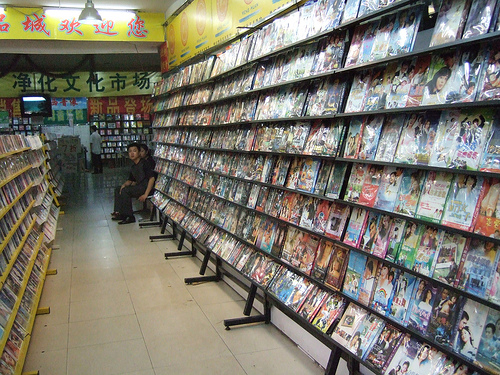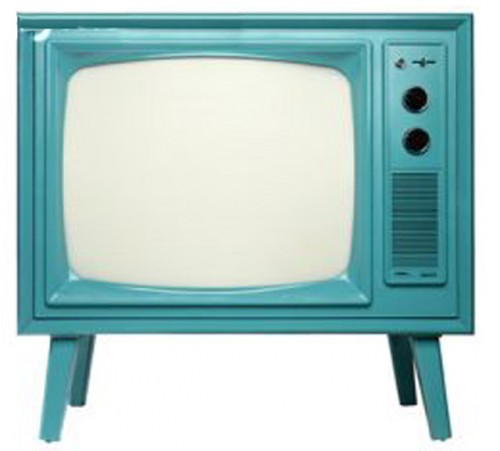Valley of the Dolls
I’ll admit that I giggled when Miley cut her hair and her twitter fan said she looked butch. I laughed when Britney went loco and shaved it all off. Hair seems to be the number one method of rebellion for the Disney starlets, this host of young women who grow up in front of the camera with overly white smiles and innocent girlish good-looks (often dimples), and then completely implode in the most public way possible. Yes, of course, these girls seek out stardom, and there will always be young kids who will do anything to get on TV or have their fame moment online, particularly now in this image-saturated techno age. And there will always be parents who will push their child from the moment they can walk to be a triple singing-dancing-acting threat. But what really intrigues/confuses me is this idea of the spectacle itself, the way in which there is an intense focus placed on these young women as they mature from kids to teenagers to young adults: it’s a coming-of-age that comes with a side of anti-depressants and multiple rehab trips – but it serves as global entertainment – whether it’s taking place on the Disney set, or through leaked grainy mobile bra pics and indiscretions at the Chateau Marmont.
October 19th, 2012 / 6:45 am
How Many Movies Are There?
First, it depends on what you consider a movie. If you define “cinema” as broadly as I do, then the answer is probably “countless.” So let’s pick something more discrete: feature films (which is what most people mean, anyway, when they say “movie”).
There’s no hard and fast rule as to what constitutes a feature. The term itself is a relic of theater-going: the feature film was the featured film—it was what the theater advertised outside, and presumably what compelled you to purchase a ticket and enter—as opposed to the various newsreels, cartoons, and serial installments that also ran (and then, eventually, stopped running). Theater-going in 2012 seems an increasingly old-fashioned hobby (see Roger Ebert’s recent article on declining ticket sales), but we still use the word to mean “a long film.”
But how long? The Wikipedia informs us:
The Academy of Motion Picture Arts and Sciences,[1] the American Film Institute,[2] and the British Film Institute[3] all define a feature as a film with a running time of 40 minutes or longer. The Centre National de la Cinématographie in France defines it as a 35 mm film longer than 1,600 metres, which is exactly 58 minutes and 29 seconds for sound films, and the Screen Actors Guild gives a minimum running time of at least 80 minutes.[4] Today, a feature film is usually between 80 and 210 minutes[citation needed]; a children’s film is usually between 60 and 120 minutes[citation needed]. An anthology film is a fixed sequence of short subjects with a common theme, combined into a feature film.
Let’s go with that 40-minute cutoff. Are we ready to start counting?
Three things I’ve watched recently and loved plus one, or, the rational love for immorality
I’ve been watching a lot of television lately. Television off the internet. This is a preferable way to watch television. For one, I don’t have to deal with commercials. Also, I can watch a whole season at a time, and being naturally obsessive, I can’t deal with the suspense of waiting an entire week—much less a whole year for a new season to start—to find out “what happens.” That being said, I have to wait on two shows now, which brings me great displeasure and discomfort.
I’ve seen a few things recently, and I’ve struggled to understand what makes them enjoyable, what compels me to keep on watching. After all, if I weren’t watching television or movies, I could be reading. (Though to be fair to myself, I spend my days trekking through fairly dense geographic texts, so by the evening, I like to relax with my partner and our two cats, “turn off” so to speak, even though I know my time could be spent in a more “productive” manner.)
But even as I’m “turning off” and letting myself get tangled in television or film, I remain critically alert. And in the end, I realize the reason I love watching what I’ve watched is because through these particular shows and films, my morality is challenged and I not only empathize but also desire the success of immoral characters. It is not unlike the experience of reading Crime & Punishment, where the reader rallies for Raskolnikov, even though he is a murderer. We don’t want him to get caught. We want him to be ok. We want the best for him. And in the end, as his consciousness fractures under the weight of his lawfully unpunished crimes, we want him to be physically punished, just to alleviate the psychological punishment.
In Praise of Sorta/Not-Very-Intellectual Fatties
 When I was about 5, my mother started reading the first installment in The Boxcar Children to me. She got to the end of chapter one and asked if I wanted her to continue. I could not believe my luck: this story, these characters, lived on in the following chapter. I was accustomed to picture books, wherein the narrative concludes after 15 pages or so. Any big books I may have had were probably anthologies of similar stories, fairy tales or fables or the like. That there were all these bigger longer stories was the most awesome childhood discovery. That The Boxcar Children was a whole series of such books, well, hell’s bells.
When I was about 5, my mother started reading the first installment in The Boxcar Children to me. She got to the end of chapter one and asked if I wanted her to continue. I could not believe my luck: this story, these characters, lived on in the following chapter. I was accustomed to picture books, wherein the narrative concludes after 15 pages or so. Any big books I may have had were probably anthologies of similar stories, fairy tales or fables or the like. That there were all these bigger longer stories was the most awesome childhood discovery. That The Boxcar Children was a whole series of such books, well, hell’s bells.
This began as a comment to Catherine’s post this morning, but then I felt like I was talking about something kind of different, so I decided to devote a post. Catherine coined the term “intellectual fatties” to describe long, abstruse novels that she gets no joy from reading. Presumably, the longer a difficult book is, the harder it is to get through, which is why she limited the field as to length. This got me to thinking about books that are long, but only regularly difficult. I don’t, to my knowledge, read many very difficult books of any length, so I can’t speak as to that.
The longest books I’ve finished are Moby Dick, War and Peace, A Suitable Boy, Les Miserables, lots of big Dickens. None of these are terribly difficult intellectually, but in all cases the experience was joyous. Longer is not harder to get through, in my experience. It’s actually much easier to read one 1200 page book, intellectually, than to read 4 books of 300 pages. In the latter case, you have to get accustomed to 4 different worlds, 4 different voices, so many more characters. In the first case, you only acclimatize one time, and then you are sailing. And you get to know those characters so much better, and you become fluent in the sound and the rhythms of the prose. After finishing The Pickwick Papers, the first 150 pages of which are dreck, I missed Sam Weller the way I miss good friends in absentia.
Whenever I teach a book to my students, I assign the first 30 or so pages, talk about those, and then assign increasingly larger sections for the duration of the novel. This isn’t just because beginnings are so important; it’s because starting a novel, and learning to navigate its terrain, is the hardest part, and I want to spend a lot of time helping them with that.
While I don’t have any hard numbers to back this up, I’m pretty sure that most of the books I’ve not finished (but have read at least, say, 40 pages of) come in under 200 pages. Don’t know why, really, but perhaps it’s because the investment doesn’t seem worth it, if I’m not pretty immediately delighted by it. Once I get into it, it’ll just be over. That’s no fun.
I prefer television shows to movies for the same reason. If I’ve signed up to immerse myself another person’s vision of things, I don’t want to be hauled ashore after just 2 or 3 hours.
Milch vs. Iannucci in a big Thursday Fuck-Off!
httpv://www.youtube.com/watch?v=z2Q7YRDL90E
or
httpv://www.youtube.com/watch?v=2T0Ofr6VYMI
Who wins? READ MORE >



